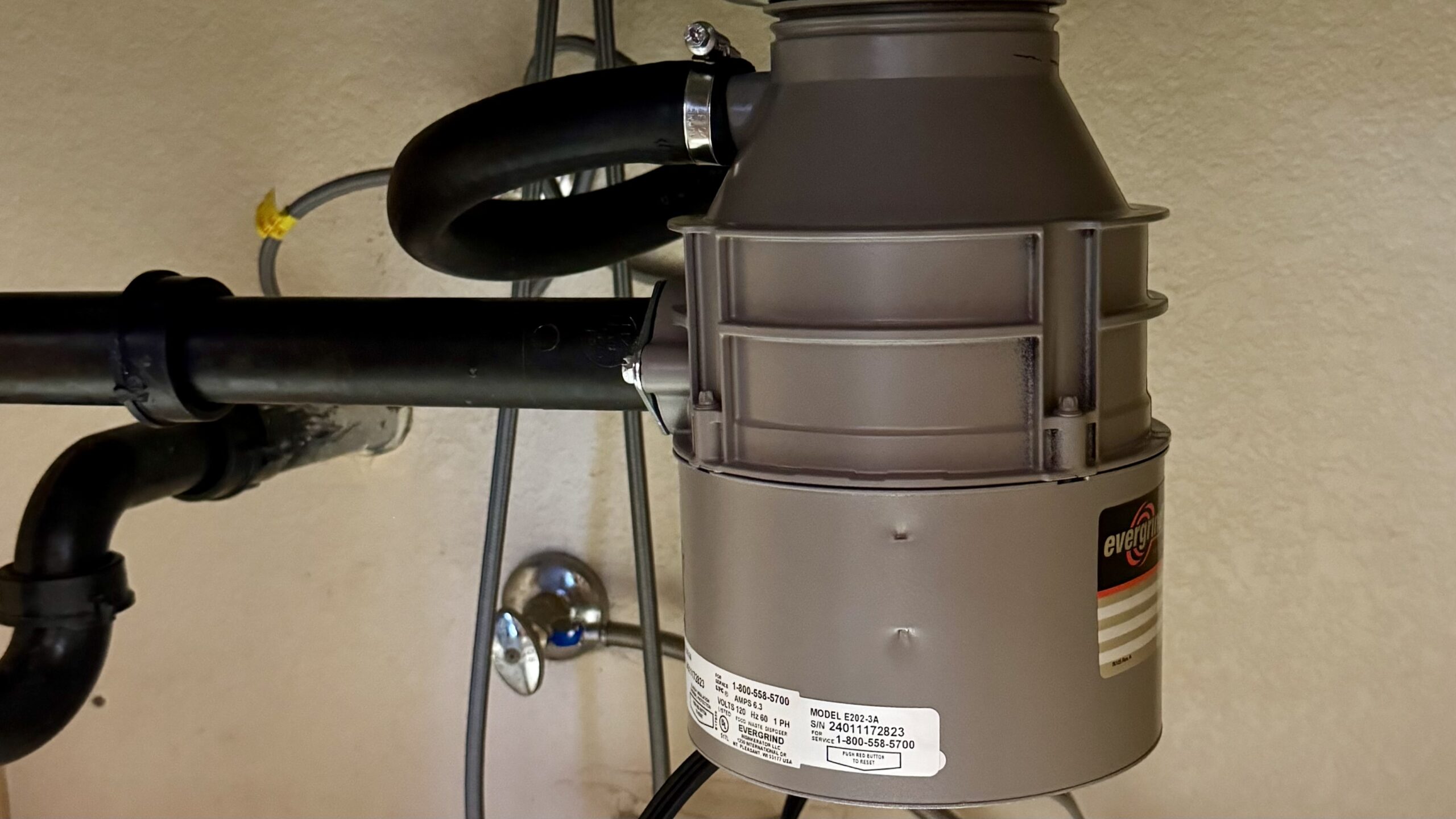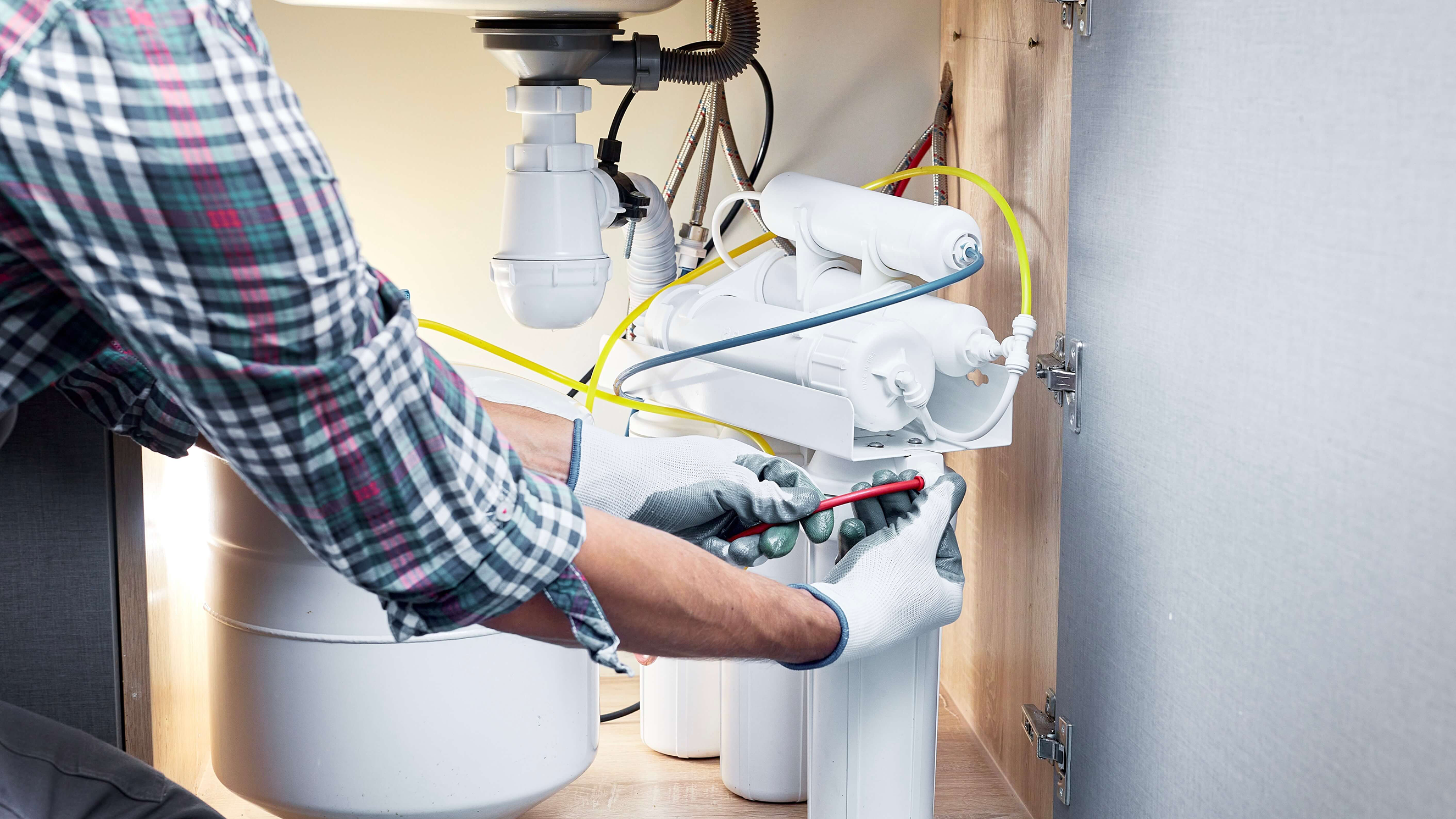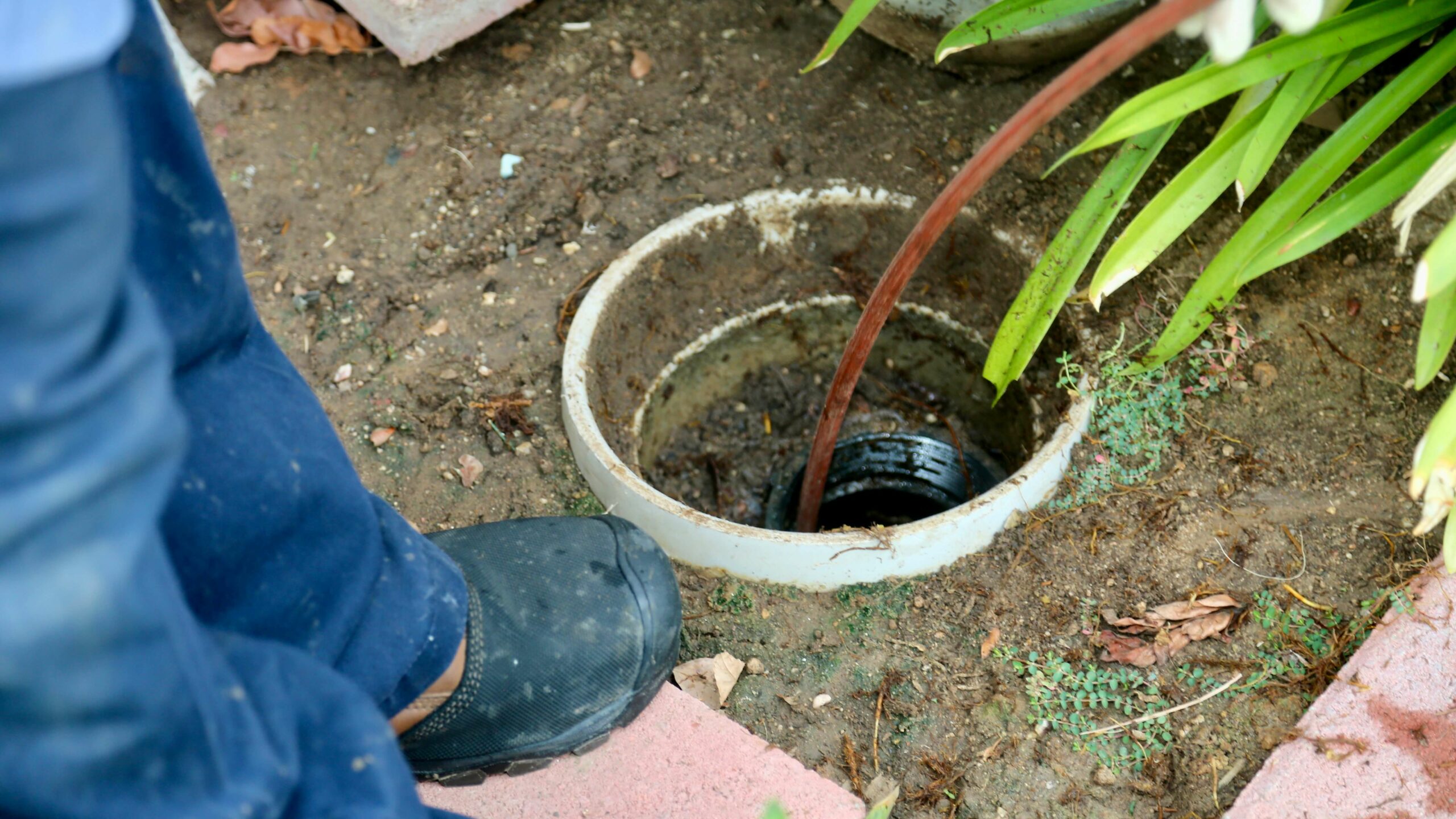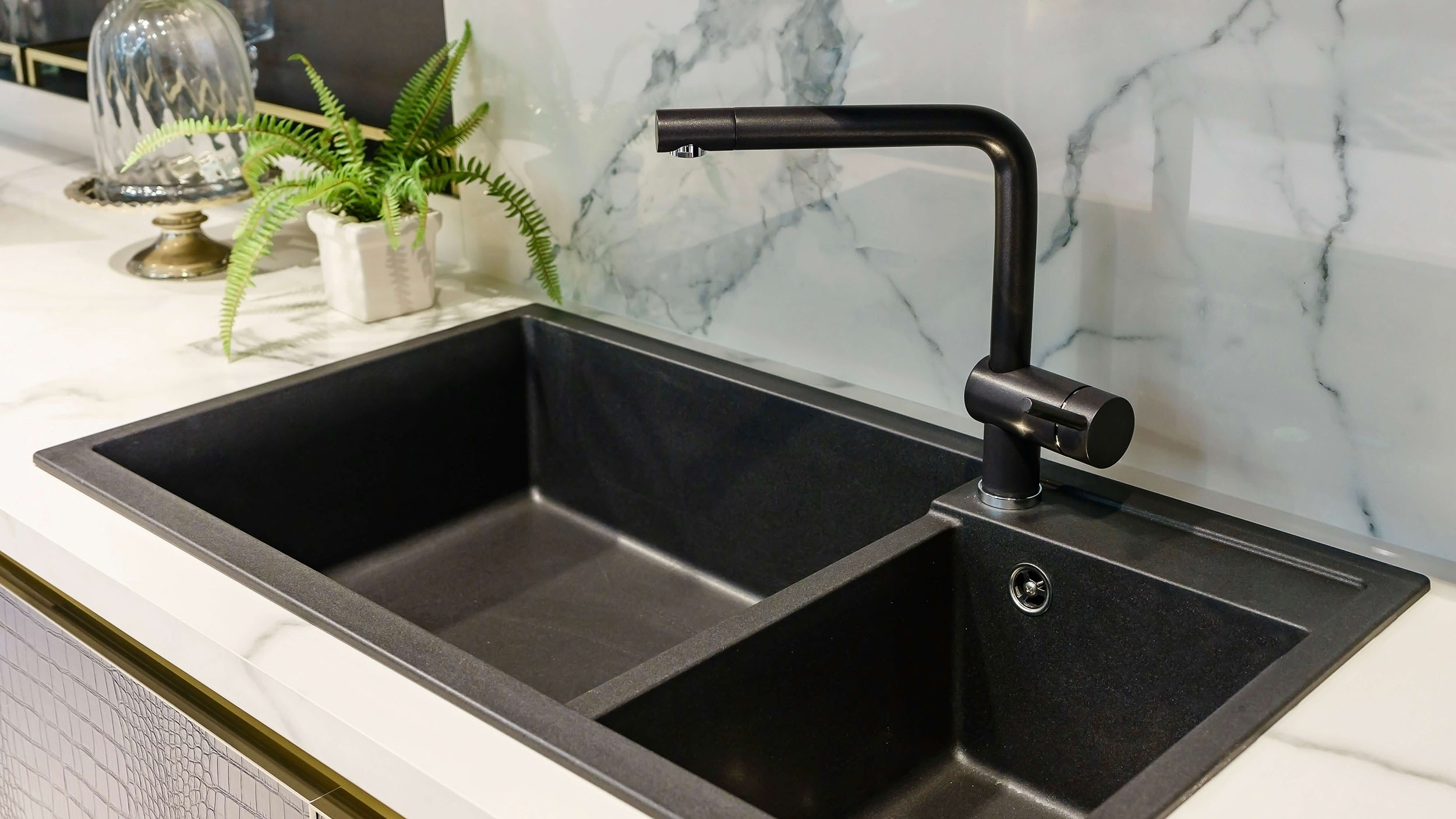While the general rule of thumb is to replace your garbage disposal every eight to 15 years, several early warning signs help homeowners make critical decisions. Feel free to diagnose the problem, but don’t hesitate to call Flush It anytime you have doubts!
1. Leaking water, especially from the bottom. In most cases, a leak from the bottom suggests the internal seal inside the unit has worn out, or the spin plate is corroded beyond repair. Sometimes, the damage might also include the power plug, creating an additional safety hazard.
While some plumbers and DIYers attempt to repair corrosion with a weld glue or epoxy, it may only extend the life of the disposal for another few years. But this assumes all the corrosion is removed (potentially uncovering small holes) and no other damage has occurred. For the time investment, it generally makes sense to replace the unit.
2. Frequent clogs, especially if it clogs after a cleaning. Garbage disposals work best grinding small amounts of food at a time (and many types of food should never go down the garbage disposal). However, a unit that continually clogs may need special treatment.
Start by disconnecting the power, removing debris with pliers or tongs, and using a plunger to free any debris caught between the spin plate and drainage. If this doesn’t work, it might be worthwhile to check the P-trap, press the reset button, or use the Allen wrench that came with the garbage disposal. If none of this does the trick, it may be time for a drain cleaning.
3. Overheating, even after a reset. Garbage disposals usually overheat because of constant use without a cool-down period, food stuck in the grinder, or a jammed flywheel. Generally, these kinds of problems can be alleviated with a proper cooldown, reset, or tripped breaker check.
If these general inspections don’t alleviate the problem, there is a good chance the motor is starting to fail. A failing motor is a sure sign that it is time to replace the unit with a new model, well before any leaks or clogs that could result in water damage to your home.
4. Foul smells, even after common cleaning tactics. Slow drains and bad smells often go hand in hand when a garbage disposal is in trouble. Slow drains are frequently caused when the disposal is not used long enough, and food or leftovers accumulate inside the unit or pipes.
Sometimes, a clog in a plumbing vent can also cause unpleasant smells as they re-enter the home (especially if bad smells are coming from several sinks or toilets). Generally, homeowners can try cleaning the unit using one of five natural cleaning solutions: ice and salt, baking soda and vinegar, boiling water, lemon, or even Borax. If smells persist, this is the best time to call a professional plumber.
5. Loud noises and anything persistent and annoying. Different sounds can sometimes help pinpoint a garbage disposal problem. Whereas humming might suggest a jammed motor, squealing is more likely to indicate a failing motor.
All other noises — clinking, rattling, or grinding — are generally signs of something being stuck, which will eventually lead to the clog. Grinding can also be attributed to loose blades once an obstruction has been ruled out.
Getting More Life Out of Your Garbage Disposal.
There are many ways to extend the life of a garbage disposal. Try running cold water more often than hot to prevent fats from congealing and sticking to the blades of the system. When you do, make sure the disposal is turned on long enough to remove food acids that cause corrosion. If someone is unsure how long is long enough, tell them to listen for the motor to quiet down. This generally means all of the debris is clear.
Run the disposal at least three times a week, even if you don’t think anything has been washed down the drain. And run a handful of ice down the disposal at least once a week, sharpening the blades and sandblasting the unit inside. As needed, pouring one half-cup of baking soda and one half-cup of vinegar down the drain doesn’t harm the drain. Doing this every few weeks should keep it odor free.
Almost every other tip related to a garbage disposal is tied to what people attempt to put down the drain. Meats, oils, fruit peels, vegetable scraps, pasta, and a host of other food items shouldn’t be allowed to go down the drain. The intent of a disposal is to prevent accidental or occasional food items from clogging your pipes. It is not meant to be a food grinder or trash can.
If you practice these tips and watch for warning signs, there is a good chance the disposal will run better and last longer, reducing any chance of a plumbing emergency. Flush It further protects your garbage disposal by recording the age of the disposal for any customers who have signed up for preventative care to save money. By anticipating when a garbage disposal or other plumbing-related fixture or appliance might fail, homeowners can better plan for a replacement and home improvement.






